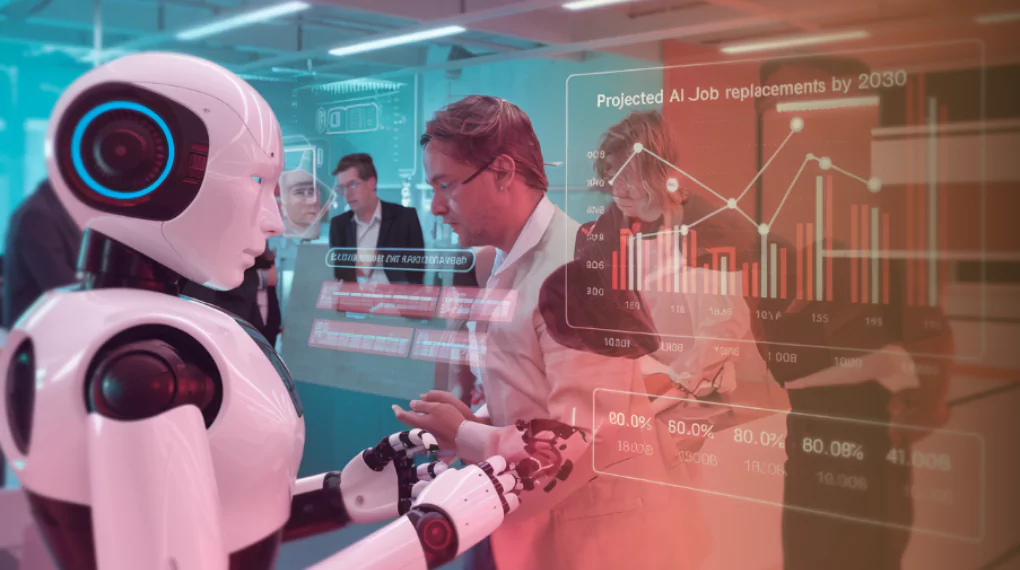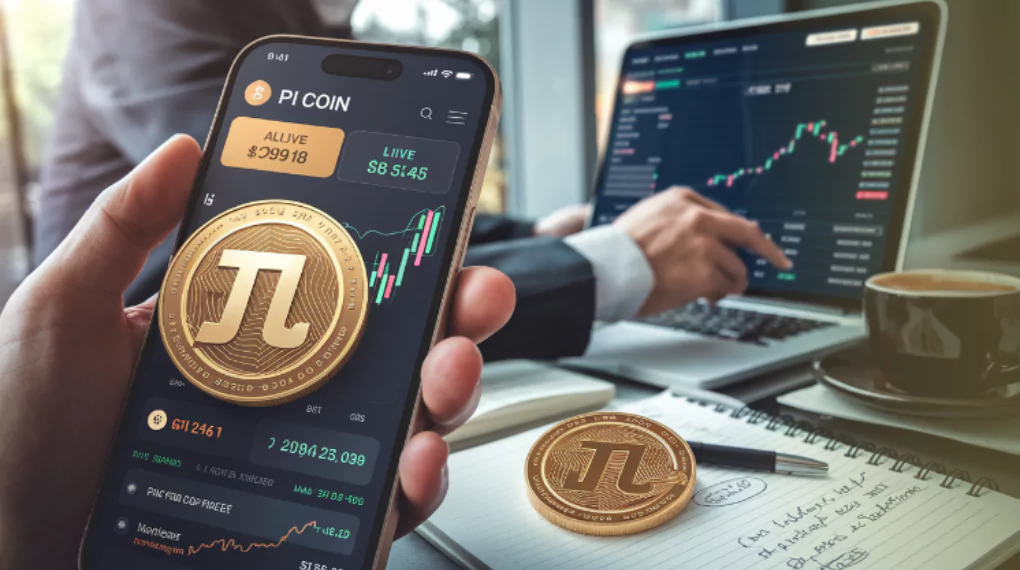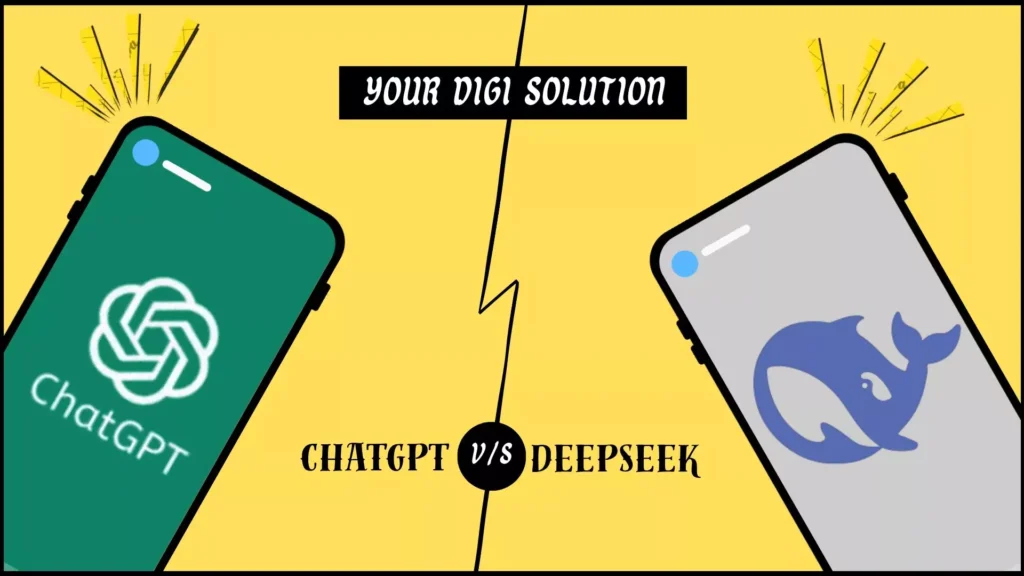Social Media Advantages and Disadvantages: A Complete Guide
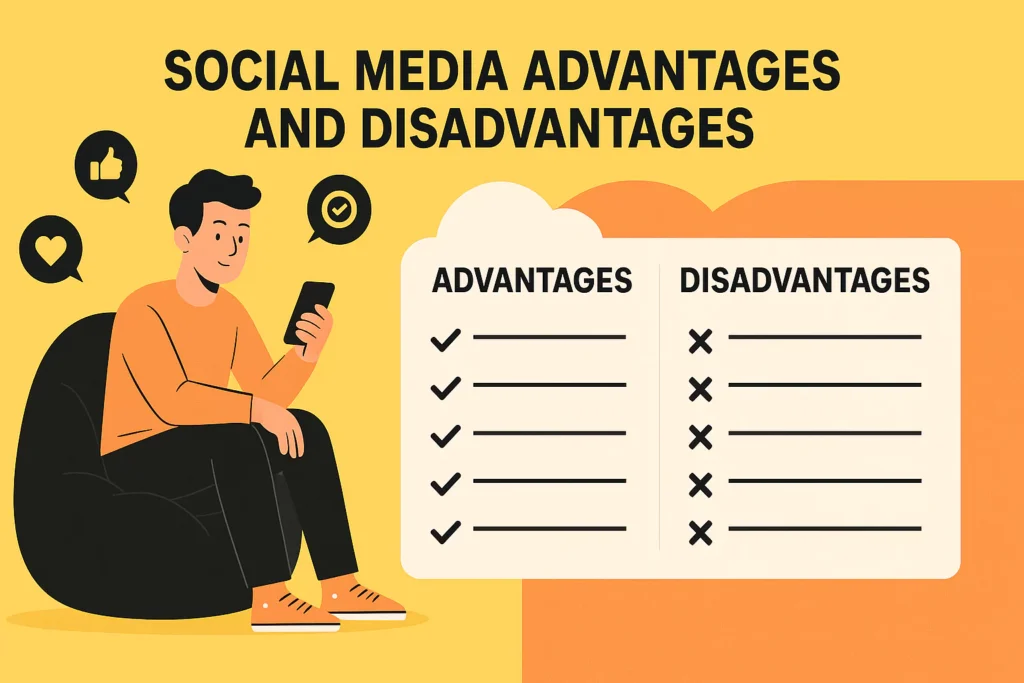
In today’s digital-first world, social media is no longer just a leisure activity — it’s a powerful platform shaping communication, education, marketing, and global interactions. Billions of people use platforms like Facebook, Instagram, LinkedIn, YouTube, and Twitter (X) every day. But with this influence comes both opportunities and risks. To use it effectively, it is essential to understand the social media advantages disadvantages that impact individuals, businesses, and society.
What is Social Media?
Social media refers to online platforms where people connect, share content, and interact globally. Originally designed for personal networking, these platforms have evolved into digital ecosystems for entertainment, education, and commerce. Today, social media influences everything from personal identity to business strategy. Understanding its scope sets the foundation to explore its pros and cons.
Advantages of Social Media
Easy Communication and Connectivity
Social media eliminates geographical boundaries, enabling instant communication across continents. Families, friends, and communities stay connected through chats, video calls, and group interactions. This connectivity fosters inclusivity, belonging, and real-time sharing of life events.
Business Growth and Marketing Opportunities
For businesses, social media is a cost-effective marketing tool. Platforms like Instagram, Facebook, and LinkedIn allow brands to target specific audiences, run ads, and directly engage customers. Startups often build global recognition solely through effective social campaigns.
Educational Resources and Learning
Social media doubles as a learning hub. YouTube tutorials, webinars, and academic forums give students and professionals access to knowledge that was once restricted to classrooms. Collaborative groups on platforms like Facebook further support peer-to-peer learning.
Networking and Career Opportunities
Networking has moved online. LinkedIn connects professionals with recruiters, while freelancers showcase skills to global clients. Social media also supports personal branding, where individuals position themselves as thought leaders or influencers in their niche.
Real-Time News and Awareness
Breaking news spreads faster on social media than on traditional outlets. Hashtags trend globally, spreading awareness about politics, disasters, or social causes. This makes social platforms a primary source of information, although accuracy remains a concern.
Entertainment and Creativity
From short-form reels to long YouTube series, social media provides endless entertainment. It is also a platform where creators — musicians, artists, storytellers — gain global recognition without traditional gatekeepers. Creativity thrives when paired with instant audience feedback.
Social Movements and Community Building
Social media has given voice to movements that drive real-world change. Campaigns like #MeToo and environmental activism have mobilized millions. For individuals, communities formed around shared interests reduce isolation and build emotional support networks.
Disadvantages of Social Media
Time Wastage and Addiction
One of the biggest disadvantages of social media is excessive use. Hours spent scrolling lead to procrastination, loss of focus, and even sleep disruption. In extreme cases, it results in behavioral addiction.
Mental Health Issues
Studies reveal a link between heavy social media use and mental health challenges. The pressure to compare lives with curated online personas often causes anxiety, stress, and depression. Trolls and online harassment worsen the psychological impact.
Privacy and Security Concerns
Users often overshare personal details, exposing themselves to risks like hacking, phishing, or identity theft. Weak privacy settings and fake profiles increase vulnerability, especially for young or uninformed users.
Spread of Fake News and Misinformation
Social platforms amplify misinformation because content spreads without verification. Health myths, political propaganda, and fake news circulate widely, sometimes causing real-world consequences. This is one of the most alarming disadvantages of social media.
Cyberbullying and Online Harassment
Cyberbullying is widespread, particularly among teens. Victims face emotional distress, withdrawal, and self-esteem issues. Online harassment through abusive comments or body shaming further highlights the darker side of these platforms.
Negative Impact on Real-Life Relationships
Despite enhancing virtual connectivity, social media often weakens offline relationships. Over-prioritizing online interactions leads to reduced face-to-face conversations and neglect of family or friends. Emotional bonds may suffer as a result.
Reduced Attention Span
The constant consumption of short-form content reduces users’ ability to focus. Especially among younger generations, this leads to impatience with detailed learning and decreased productivity.
Social Media Advantages Disadvantages for Students
For students, social media offers a unique blend of opportunities and challenges. On the one hand, it acts as an academic support system, providing access to resources, global discussions, and e-learning opportunities. Students can connect with peers, collaborate on projects, and showcase skills on platforms like LinkedIn or Instagram.
However, it also distracts students from academics. Scrolling through reels or gaming communities often consumes study hours. Peer pressure and cyberbullying can create emotional stress. If not managed properly, social media can negatively affect academic performance and mental health.
Social Media Advantages Disadvantages for Businesses
Businesses thrive on social media, especially small and medium enterprises. It allows them to market products at minimal cost, directly engage with customers, and build brand loyalty. Campaigns and analytics give businesses powerful insights into customer behavior, allowing data-driven decisions.
Yet, businesses also face challenges. A single negative review or viral complaint can damage a brand’s reputation overnight. The need to constantly create engaging content places immense pressure on marketing teams. Moreover, oversaturation of brands on social platforms creates stiff competition, making visibility harder without significant investment.
Statistics Showing the Impact of Social Media
Numbers reflect the magnitude of social media’s influence. As of 2025, over 4.8 billion people use social platforms worldwide. On average, users spend two to three hours daily browsing feeds, watching videos, or engaging with communities. Nearly 73% of businesses depend on social media for marketing growth. On the negative side, about one in three teenagers report experiencing cyberbullying, underlining the risks of heavy dependence on digital networks.
How to Use Social Media Effectively
To balance social media advantages disadvantages, mindful usage is key. Setting daily time limits can prevent overuse and addiction. Following quality content creators — educational, motivational, and professional — ensures a positive feed. Privacy settings should always be updated to protect against scams and misuse.
It is equally important to balance online and offline life. Real-world interactions provide emotional grounding that virtual communication cannot replace. Users should also verify facts before sharing content, curbing misinformation. Most importantly, social media should be treated as a tool for growth: a platform to learn new skills, build personal brands, and network meaningfully.
Conclusion
Social media is both a blessing and a challenge. On one side, it offers unmatched opportunities for communication, business growth, education, and awareness. On the other, it exposes users to risks of addiction, privacy breaches, misinformation, and mental health concerns.
The key lies in conscious use. By understanding social media advantages disadvantages, individuals and businesses can maximize the benefits while protecting themselves from harm. With the right approach, social media can be more than just a digital distraction — it can become a tool for empowerment, knowledge, and meaningful connections.
